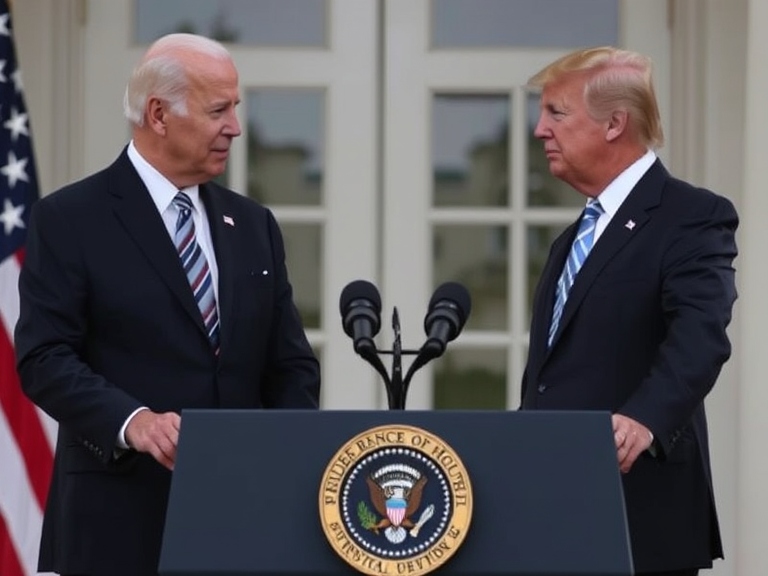In a surprising political turn, President Joe Biden extended his congratulations to former President Donald Trump on his recent victory, inviting him to the White House for a discussion. The news has sparked conversations not only across the U.S. political landscape but also in business and industry circles, with leaders looking to understand how this shift could affect sectors like manufacturing, supply chains, and global sourcing.
The gesture of an invitation is not just a symbol of political unity; it also highlights an opportunity for collaboration on issues like trade, domestic manufacturing, and economic growth. With U.S.-China relations impacting global supply chains, both Biden and Trump have shown interest in reshoring manufacturing and boosting local production. This might signal positive changes for businesses relying on sourcing agents and manufacturers who navigate these complex supply networks.
A New Era for Supply Chains?
Both political figures have acknowledged the impact of global supply chain disruptions over recent years. From the pandemic to geopolitical tensions, businesses have faced delays, high shipping costs, and material shortages. The invitation for discussion may also signify a unified approach to strengthening domestic supply chains, potentially easing some of these challenges for U.S. businesses.
Increased support for American manufacturing could reduce reliance on foreign suppliers, creating opportunities for businesses to source and produce locally. This shift may reduce the demand for foreign sourcing agents and instead foster a new network of Best sourcing agents who can connect companies with top-quality, cost-effective U.S. manufacturers. As policies continue to evolve, companies will have the chance to adapt to new sourcing solutions that support both economic and environmental sustainability.
What This Means for the Manufacturing Industry
The manufacturing industry, heavily reliant on global supply chains, could see substantial changes as a result of this potential bipartisan approach. With rising costs and concerns over the stability of foreign manufacturing, a new emphasis on American-made products might lead to an increase in local jobs, further development of industrial infrastructure, and a renewed focus on skilled labor.
U.S.-based sourcing agents could also play a more significant role in helping companies identify reliable local suppliers. A shift in sourcing practices would streamline production and reduce lead times, creating a more robust supply chain that’s less vulnerable to international disruptions.
Implications for Best-Sourcing Strategies
For companies, finding the best sourcing strategy has always been key to ensuring high-quality products at competitive prices. In a scenario where U.S. manufacturing becomes more viable, companies might explore new sourcing options that bring them closer to home. Bestsourcing agents and consultants specializing in local production can be instrumental in finding efficient and ethical supply chain solutions, particularly if American-made goods become more attractive to consumers.
The potential policy shifts resulting from a Biden-Trump discussion could also affect the parameters for choosing suppliers, such as prioritizing those that meet stringent labor, environmental, and quality standards. This focus could improve corporate social responsibility within the industry, as consumers increasingly demand transparency about the origins of products they purchase.
The Road Ahead for U.S. Business Leaders
If this bipartisan dialogue leads to policy changes, business leaders should prepare for potential shifts in sourcing and manufacturing strategies. Working with experienced sourcing agents who understand both international and domestic markets will be essential for companies aiming to stay competitive. Flexibility and adaptability in supply chain management will be crucial for any industry player looking to capitalize on these potential changes in sourcing, manufacturing, and supply chain dynamics.
The invitation from President Biden to Donald Trump not only holds significance for political unity but also opens doors for robust policy conversations that could transform American industry. Business leaders and industry experts will be watching closely to understand how this development could shape the future of sourcing, manufacturing, and supply chain management in the United States.
In conclusion: The impact of a united approach to U.S. manufacturing and supply chain management may be profound, providing a competitive edge to businesses that act proactively. As this story unfolds, partnering with knowledgeable sourcing agents and keeping a pulse on policy shifts will be key to thriving in the evolving marketplace.

